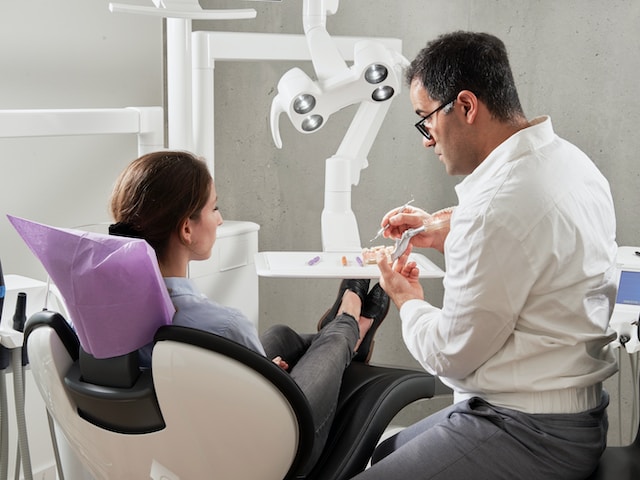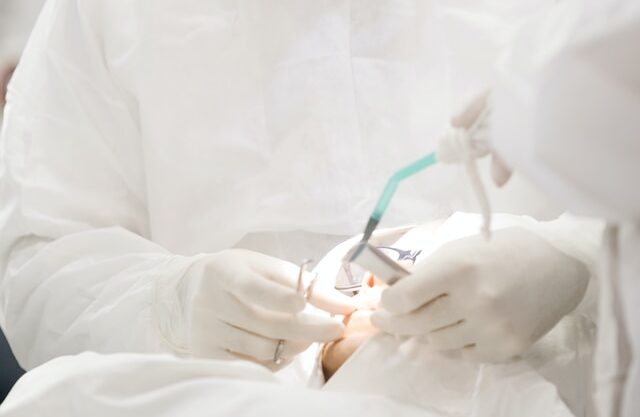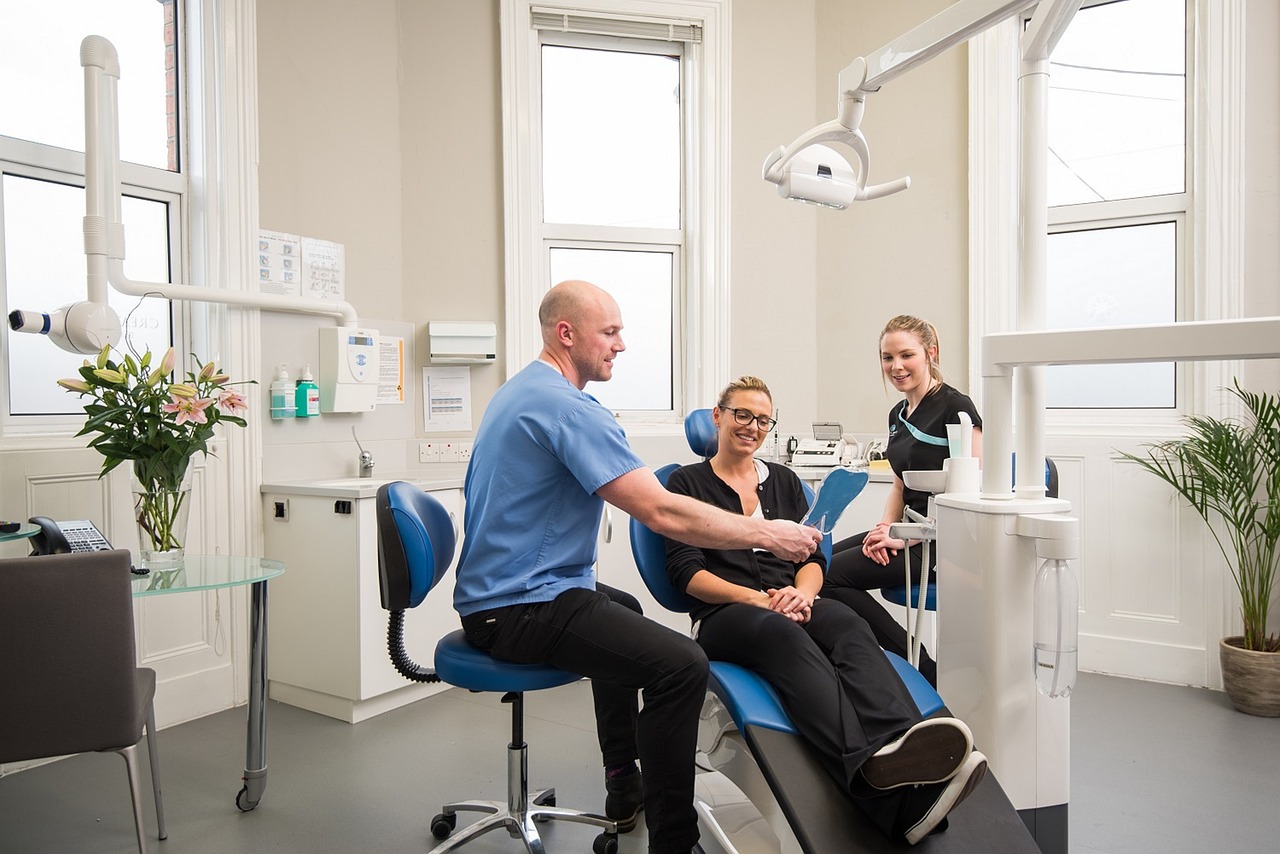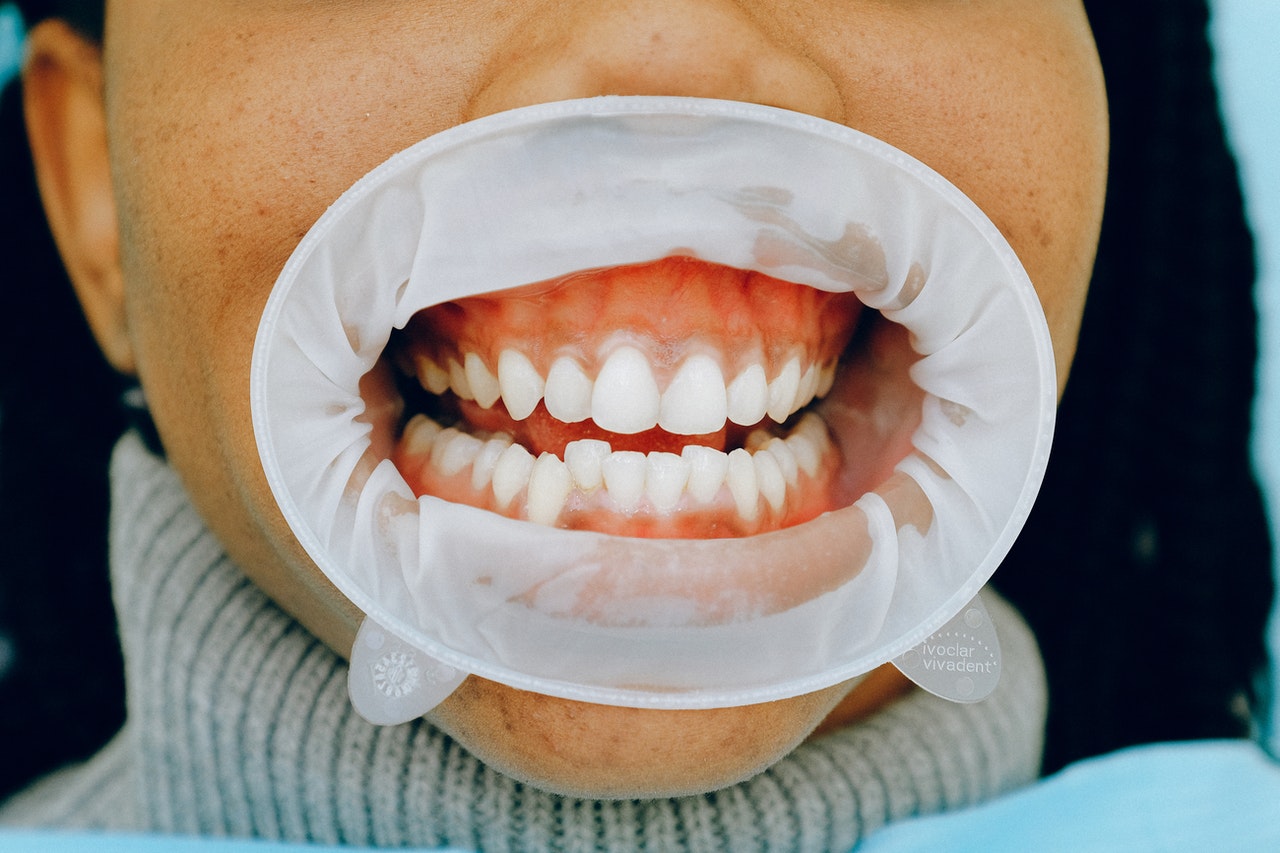
Oral cancer is a deadly disease but also very curable if you detect it early. Although a visit to the dentist is a sure way to detect it, you should also know what mouth cancer may look like. This way, you’ll know what to look out for to promote early treatment and increase survival chances.
Oral cancer risk increases with age and is more common in people above 60 years. Discover what oral cancer is, how to detect it early, and what to do after.
What Is Oral Cancer?
Oral cancer is a severe type of cancer that affects any part of the mouth, including the lips, tongue, cheeks, floor of the mouth, and the hard and soft palates. It’s usually caused by uncontrolled growth of cells in the affected area. These overgrown cells eventually form a mass or tumor.
Uncontrolled cell growth can happen for different reasons, but the most common risk factors are smoking, heavy alcohol use, and exposure to certain types of Human Papillomavirus (HPV).
In the United States, it’s estimated that about 54,000 people will be diagnosed with oral cancer each year. Of these people, more than 10,000 will die from the disease. Men are more likely to develop oral cancer than women, and the risk increases with age.
Even though the numbers may seem overwhelming, deaths from oral cancer have reduced in recent years. Proper self-examination, early detection, and advances in treatment have also increased the survival rate.
What Does Mouth Cancer Look Like?
Oral cancer can make it difficult to speak, eat, and swallow. It can present different symptoms, and here are some common ones to look out for:
- Sores or lumps in the mouth or on the lips: These can appear as small, painless, raised areas or deep, persistent mouth sores. They can be red or white and may bleed easily.
- Pain or numbness in the mouth or lips: This can occur due to a tumor pressing on nerves or as a side effect of cancer treatment.
- Difficulty swallowing or chewing: This can be a symptom of a tumor in the throat or esophagus, making it hard to eat or drink.
- Red or white patches in the mouth: These patches, also known as leukoplakia or erythroplakia, can appear as raised or flat bruises in the mouth. They’re often precancerous, meaning they may develop into cancer over time.
- Persistent sore throat or hoarseness: This can indicate a tumor in the throat or larynx and make it hard to speak or breathe.
- Lump in the neck or jaw: This can be caused by a tumor that has grown large enough to be felt through the skin or by a swollen lymph node.
- Unexplained weight loss: Cancer, in general, can cause loss of appetite and result in weight loss.
- Ear pain: If cancer spreads to the ear or the skull’s base near the ear, it can cause pain in the ear.
Many of these symptoms can also be caused by other less severe conditions. So if you’re experiencing any of them, you must see a dentist or other medical professional for a proper diagnosis.
They may refer you to an oral surgeon or an otolaryngologist (an ear, nose, and throat doctor) for further evaluation and treatment.

How to Detect Mouth Cancer Early
Here are a few things you can do to detect oral cancer early:
- Look out for changes in your mouth, such as sores that don’t heal, lumps, or white or red patches on your gums, tongue, or cheeks. If you notice anything unusual in your mouth, schedule an appointment with your dentist immediately.
- Schedule regular check-ups with your dentist or doctor. They will be able to check for any signs of oral cancer. If your dentist or doctor suspects that you may have oral cancer, they’ll perform a biopsy. A biopsy involves taking a small tissue sample from the area of concern and sending it to a lab for analysis.
- It’s also important to be aware of your family history. If a family member has been diagnosed with oral cancer, talk to your dentist about your risk and schedule more frequent checkups.
Treatment for Mouth Cancer
The first step in treating oral cancer is to visit a dentist for a diagnosis. Your dentist will typically carry out a physical exam, biopsy, and imaging tests such as CT or MRI scans.
Once your dentist confirms the diagnosis, they will discuss the treatment plan with you. Treatment typically involves a combination of surgery, radiation therapy, and chemotherapy, depending on the type and stage of the cancer.
Surgery is usually the first line of treatment for oral cancer and is used to remove the tumor and any surrounding tissue that may be affected.
Your dentist may also prescribe radiation therapy, often combined with surgery, to destroy cancer cells. Depending on the type of cancer, you may get an internal or external radiation therapy.
Chemotherapy, on the other hand, is a type of medication used to kill cancer cells.
It’s important to remain positive and stay optimistic while going through treatment. Make sure to get plenty of rest, good nutrition, and keep up with social activities. Having a solid support system of family members and friends is also important.
If you’re feeling overwhelmed, it can be helpful to talk to a counselor or join a support group. They can provide emotional support and help you manage stress.
Maintaining a healthy lifestyle and eating a balanced diet with plenty of fruits and vegetables, lean proteins, and whole grains can help your body heal and fight infections.
Avoiding tobacco, alcohol, and other unhealthy substances is also essential.
Finally, it’s important to go for your follow-up appointments. This will allow your dentist to detect changes in the cancer quickly and help you stay on top of your treatment.

Get a Thorough Oral Health Exam in NYC
The best way to detect oral cancer early is by visiting your dentist at least every six months. You may have to see your dentist more often, depending on your risk factors. If you live in New York City, Advanced Dental Arts in Greenwich Village is the best place to examine your mouth.
At Advanced Dental Arts, we examine more than just your teeth during routine visits. We also check your tongue, palate, gums, and cheeks for any lesions or growths that look even slightly suspicious.
We use modern technology like the VELscope to detect lesions or suspicious areas in their early stages. The VELscope is a handheld device that emits a light that causes abnormal tissue to appear dark and normal tissue to fluoresce. It helps us identify potential areas of concern and, in some cases, allows us to see abnormalities that the naked eye can’t.
Book an appointment with us today to reduce your chances of getting oral cancer or other oral problems!

 Dr. Todd Bertman
Dr. Todd Bertman 26 Apr
26 Apr


